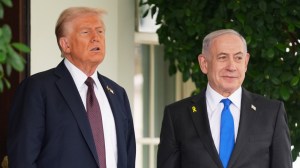Mr Orwell, this certainly isn’t ‘war minus the shooting’
At the international level,” wrote George Orwell, “sport is frankly mimic warfare”.Orwell was writing at the end of World War...

At the international level,” wrote George Orwell, “sport is frankly mimic warfare”.
Orwell was writing at the end of World War II but anyone who attended European soccer matches in the 1980s would have had to agree that his description of “orgies of hatred” remained valid.
Violent street battles and the most vulgar nationalism accompanied matches between European clubs and national teams while in sections of the media, the constant use of military metaphors underlined Orwell’s observation.
Even four years ago his phrase “war minus the shooting” rang true, as in the squares of Belgium, in Charleroi and Brussels, English fans fought with locals while taunting and boasting of wartime deeds.
So what would Orwell have made of Euro 2004?
For almost a month, Portugal has been host to football fans from 16 European nations but this time the atmosphere inside the stadiums and on the streets has lived up to the billing as a ‘festival of football’. Although segregation inside stadiums officially remains, large areas of seating have contained fans of both teams right next to each other.
In the past this would have been a security nightmare and the Portuguese could have expected to be heavily criticised for their ticketing policy if violence had broken out in those mixed areas.
But there has been no violence in the stadiums, in fact barely a hint of aggression. Euro 2004 spectators did not need to be divided by barbed-wire fencing or lines of baton-wielding police. In the squares and bars of Lisbon and Porto fans have mingled, drinking beer and singing songs without the bars needing to bring down their shutters for fear of flying glasses and broken windows.
Certainly, the violence displayed by English who chose to spend the weeks drinking in the Algarve showed that there are still people who use the tournament as an excuse for disorder.
It is too soon to start forgetting about the risk of hooliganism but something that really has changed at this event is the demographics. Once football crowds at major tournaments were dominated by males in their twenties and early thirties but there has been a much greater diversity at Euro 2004. Women are in the stadiums and involved in the street celebrations in unprecedented numbers, not just Portuguese girls waving flags after their team’s victories. Feminists might not appreciate the halftime ‘babe watch’ from the television cameramen but who would swap it for images of thugs looking for trouble? Families have travelled to Portugal, taking in football on their holidays and they surely contributed to the different atmosphere in the grounds.
Adding to the changed atmosphere, ‘New Europe’ was out in strength as never before with Croatians, Bulgarians, Russians, Latvians and Czechs all turning out to support their teams in impressive numbers. Back in the 1980s those fans were still living under Communist systems and even when they began to be allowed to travel few had the hard currency to spend on two or three weeks in West European hotels and restaurants. That is slowly changing. The impression left is that while Europe’s politicians continue to struggle with the process of greater integration the continent’s football fans are putting the idea into practice. Not that the game has suddenly become a sporting version of Woodstock — fans are still fans and national pride remains a key part of the atmosphere as the Dutch showed with their uniform blocks of orange-clad supporters.
But, as Orwell himself observed, there is a huge difference between such positive patriotism and aggressive nationalism.
He would surely, though, find it difficult to describe Euro 2004 as “war minus the shooting”. If anything, Portugal has been an example of European Union minus the politics. (Reuters)





- 01
- 02
- 03
- 04
- 05


























